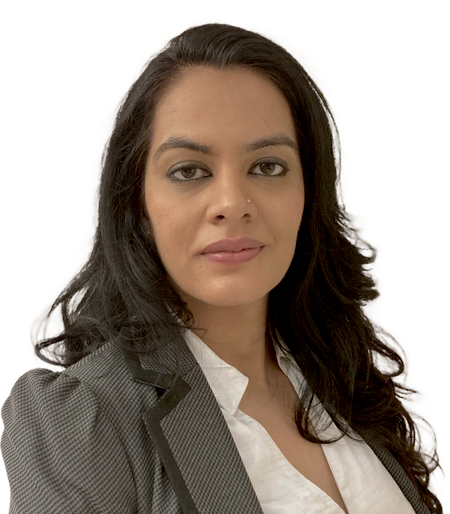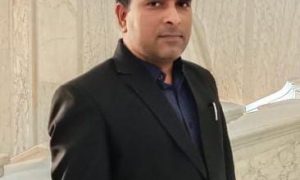This interview has been published by Priyanka Karwa and The SuperLawyer Team

Ma’am, please tell us about your journey and how you ended up pursuing a career in law, particularly in the field of international law and arbitration?
In school, I was head of the debating society and also part of the dramatics club. Obviously, I was fond of being the front and centre of anything to do with expressing and discussing ideas. I wanted to take that forward in my life. For a very long time, I was torn between journalism and law. But then I got to law school, and I just knew from the get go that this is where I wanted to be. Never looked back.
I don’t think it makes sense to jump right into international law or arbitration at the start of one’s career. You have to ground yourself in the practice of law in your home jurisdiction first, get your hands dirty, figure out what area of law you want to practice in, and how you want to practice. Are you into commercial disputes, or criminal law, or corporate transactions, or intellectual property? Do you want to work for a small firm, big firm, senior counsel? This is what I did. I worked with a law firm, then with a practicing advocate in the Delhi High Court. It took me a few years to identify with certainty that I was interested in commercial disputes, and I wanted to be where the hearing was, inside or outside of court. That’s when I went to Cambridge and studied public international law with a focus on international dispute settlement. After that, I worked at the Hong Kong office of the International Chamber of Commerce- Court of Arbitration, and later as a Tribunal Secretary in international commercial arbitrations / SIAC. I spent more than a decade slowly evolving into my chosen area of practice, which was international law and arbitration. In 2021, I felt I had the wherewithal to strike out on my own and set up my own practice. So I did.
You have an impressive academic background, including an LL.M. from the University of Cambridge. How did your time at Cambridge shape your career and interests in public international law?
More than anything, Cambridge taught me that intelligence is inter-personal. If you are truly intelligent, you will have the humility to accept that what you know is not everything, and knowledge comes from everywhere. From your classmates on a Sunday-morning-punting escapade on the Queens’ river, from discussions over coffee, from sport, from music. You must have the versatility to absorb knowledge from any source, and engage in discussions with anyone. That learning gave me immense perspective, and allowed me to look at the practice of law from an objective distance. I began to enjoy the discussion and study of public international law and dispute settlement without the trappings of competition and survival which are so ingrained in traditional systems of education. It helped me become a well-balanced professional, engaged in practice but also entertained by it, and gave me the tenacity to walk away from a bad day in court but keep coming back. More and more, I think the trick to succeeding as a professional is just being patient and consistent, which you can’t be if you don’t enjoy what you’re doing.
You have experience as both an advocate in India and a solicitor in England & Wales. How has this dual qualification benefited your practice, and what unique perspectives do you bring to the table?
Commercial disputes are becoming more and more trans-national, cross-border as the world is becoming more and more economically integrated. Being qualified to practice in more than one jurisdiction brings with it a comparative understanding of fundamental legal principles, for example, of contract, property law, constitutional law, etc. That enables a lawyer to provide more holistic advice in a dispute involving cross-border transactions. I think for a young lawyer looking to get into international commercial arbitration, a dual qualification is increasingly indispensable.
As the Founder & Head of Arbridge Chambers, could you share some of the highlights and challenges of establishing and managing your independent chamber practice?
I think the challenges are two fold, first, to find the conviction in what you know and what you can do despite what other people may think or say, and, second, to back up that conviction with all your resources. Your time, savings, energy. You have to put the cart before the horse and invest in research tools, human resources, networking etc. even before you can see the next big matter coming. If you are going to be scampering for these when the matter actually comes, it is already too late.
You have been involved in several international arbitrations as both an arbitrator and counsel. What drew you to specialize in this area, and what do you find most fulfilling about your work in arbitration?
In essence arbitration is just another method of resolving disputes. If one is interested in litigation and dispute resolution in general, then interest in arbitration follows as a natural corollary. What I enjoy the most is that arbitration has a clear structure, with enough time and flexibility to really get into details of the claims, evidence, matters of procedure. The outcome can genuinely be influenced by the manner in which claims are drafted, presented and argued. I find that very satisfying as a professional.
You have been involved in investor-state disputes on behalf of the Government of India. Can you share some insights into the complexities and nuances of handling such cases on a national level?
This is really the most enriching and glamorous part of my practice. Every piece of advice or representation for the GOI comes with the immense satisfaction of knowing that you are doing something which has an impact on a larger scale. But it also comes with immense responsibility. You have to be aware of the practicalities in the conduct of business and the sensitivities involved in government work when you present positions in an international context, and you have to be damn sure of what you are doing. I think being thorough and measured is very important when acting on behalf of a government entity in general.
One of your areas of expertise is infrastructure disputes. What unique legal considerations and challenges are involved in resolving disputes related to infrastructure projects?
It would be safe to say that infrastructure disputes are often bread and butter for an arbitration practice. They are big, complex disputes running into pages and pages of documents, and the trick is always to simplify. I usually start with a pen and paper and spend time chalking out the life of the project. Once that is done, the rest of the effort is to fit pieces of information in the overall story / flow of the transaction.
Over the years, you’ve been actively involved in various international arbitration organizations and committees. Can you tell us about the significance of such engagements and how they contribute to the development of the field?
Like I said, knowledge is inter-personal. It is important to engage with like-minded practitioners in the field, to learn from their experiences and strengthen networks. I don’t believe in being involved in everything all at once. It has always worked for me to find an organisation or committee that genuinely reflects my interests and my professional profile, and then figure out ways of being more involved in it.
As a member of the Global Steering Committee for Young Arbitral Women Practitioners and an Advisory Board Member of Indian Women in International Arbitration, what efforts do you think are crucial to promoting gender parity and diversity in the field of international arbitration?
The most important thing to do right now is to develop the network. Particularly in India, the community of arbitration practitioners itself is very nascent and upcoming, and the women practitioners are an even smaller grouping. Young women arbitration practitioners need to know that there are others like them, and that everyone is in the same boat, dealing with similar challenges. That in itself is likely to be a big source of strength and support for everybody involved. If we can also enhance visibility and work opportunities for members as we go along, that is a bonus. YAWP Steering Committee and the IWIA Advisory Board both have an amazing team of very dedicated and trail-blazing practitioners heavily committed to creating better networks and opportunities for women in arbitration. We are bound to succeed.
You’ve been a guest faculty at National Law University, Delhi, and have conducted courses on investment treaty arbitration. How important is it to impart specialized knowledge to young law students in this field?
I see teaching as a two-way street, having always walked away from a lecture with a question I never thought of, or a perspective I didn’t see. Plus, you have to stay abreast of new ideas. You can’t do that if you are only interacting with people at your level professionally. You see, I learn so much from students, it is hard to say I am the one imparting knowledge to them!
Lastly, what advice would you give to fresh graduates or young professionals aspiring to succeed in the legal industry, particularly in the field of international law and arbitration?
My advice to those looking to pursue arbitration is to start somewhere, anywhere, in a practice focussed on disputes, whether or not it is focussed on arbitration. You need to acquire the skills to be a disputes practitioner. You will get to arbitration eventually, even if you are not there today. Just keep at it. And while you are at it, value your colleagues, even people junior to you. These are the people who will be with you for the ride, and who are likely to help you when you really need it.























